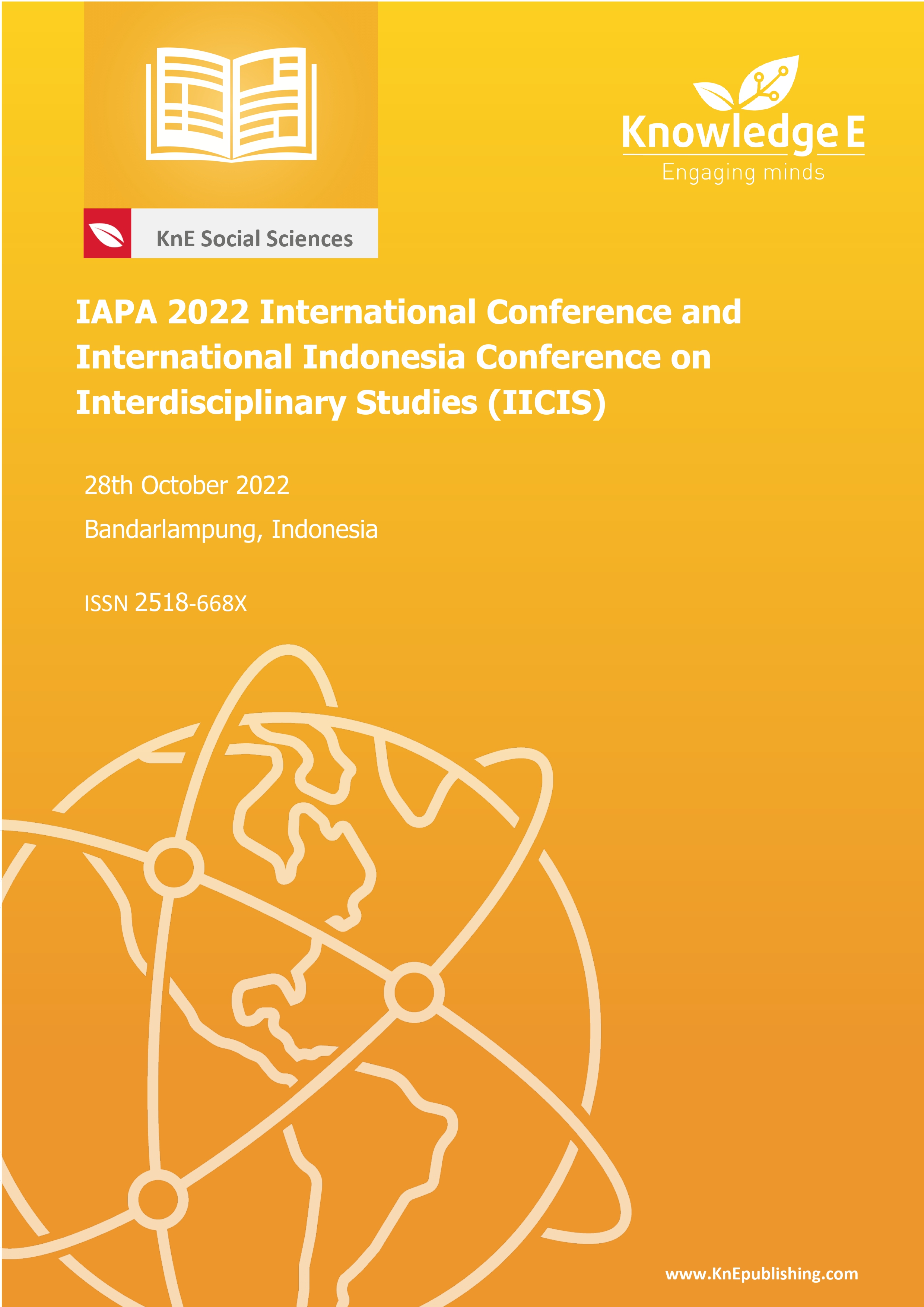Examining the Indonesia Bureaucracy Response and Problem in Pandemic Times: A Preliminary Diagnostic Study
DOI:
https://doi.org/10.18502/kss.v8i5.13029Abstract
This investigation was prompted by the conditions of the COVID-19 pandemic, which created very rapid changes in the bureaucratic environment. This initial study is intended to explain how the Indonesian bureaucracy responds to changes due to the pandemic. A literature study is used to aggregate some of the findings of the latest research in Indonesia and official and accountable reports on bureaucratic governance. General results show that the bureaucracy in Indonesia is still stuttering in carrying out its functions. When the public requires quick and fair service, bureaucratic formalism, as an effect of Weberian bureaucracy, finds its contradiction. Still, the response required by the public does not accompany it. Further studies must be initiated to formulate an agile and public-centered bureaucratic model in the post-pandemic era.
Keywords: bureaucracy, COVID-19, pandemic
References
[2] Faedlulloh D, Maarif S, Meutia IF, Yulianti D. Birokrasi dan Revolusi Industri 4.0: Mencegah Smart ASN Menjadi Mitos dalam Agenda Reformasi Birokrasi Indonesia. Jurnal Borneo Administrator. 2020;16(3):313–336.
[3] Yusuf M, Muzwardi A, Syukri M. Government responsiveness in the prevention of spreading Covid-19: Vietnam and Indonesia in comparison. Jurnal Ilmu Sosial dan Ilmu Politik. 2021;25(1):81–93.
[4] Kanisius OM. Evaluasi Pelayanan Publik Selama Pandemi [Internet]. Ombudsman. 2020 [cited 2021 Jan 11]. Available from: https://ombudsman.go.id/artikel/r/artikel– evaluasi-pelayanan-publik-selama-pandemi
[5] Firhansyah M. Maladministrasi di Masa Pandemi [Internet]. Ombudsman. 2020 [cited 2021 Jan 11]. Available from: https://ombudsman.go.id/artikel/r/artikel– maladministrasi-di-masa-pandemi-
[6] Fraenkel JR, Wallen NE, Hyun HH. How to design and evaluate research in education. New York: McGraw Hill; 2012.
[7] Pierson P. Increasing returns path dependence and the study of politics. Am Polit Sci Rev. 2000;94(2):251–267.
[8] Janssen M, van der Voort H. Agile and adaptive governance in crisis response: Lessons from the COVID-19 pandemic. Int J Inf Manage. 2020;55( June):102180.
[9] Krisnajaya IM, Suripto S, Dewi NP, Sulistiyani AT, Laksana LUA. The political process of bureaucratic reform: Wonosobo Regional Government Experience from 2011-2015. Jurnal Ilmu Sosial dan Ilmu Politik. 2019;23(2):135–149.
[10] Caroline Paskarina. The making of competitive bureaucracy: A case of bureaucratic reform in West Java province. Cogent Soc Sci. 2017;3(1).
[11] Pratiwi P. Bureaucratic reform in Indonesia: Innovation, challenges and typologies. In: International Institute of Administrative Science – Asian Group for Public Administration (IIAS-AGPA) Conference. Asian Group for Public Administration (IIASAGPA); 2014.
[12] IMD. World competitiveness ranking [Internet]. 2022 [cited 2022 Aug 16]. Available from: https://www.imd.org/centers/world-competitiveness-center/rankings/worldcompetitiveness/
[13] Mckenna S, Garcia Lorenzo L, Bridgman T. Managing, managerial control and managerial identity in the post bureaucratic world. J Manag Dev. 2010;29(2):128–136.
[14] Surur M. Birokrasi Weberian: “Proportional Approach.” Jurnal Politik dan Sosial Kemasyarakatan. 2019;11(2):86–104.
[15] Purnamasari DM. Wapres: Birokrasi Lambat Jadi Sumbatan Pemulihan Akibat Pandemi [Internet]. Kompas. 2020. Available from: https://nasional.kompas.com/read/2020/08/11/14281381/wapres-birokrasi-lambatjadi- sumbatan-pemulihan-akibat-pandemi
[16] Libois B. La communication publique: pour une philosophie politique des medias. Paris: L’Harmattan; 2002.
[17] Jannah SM. BKN: 30 Persen ASN Tidak Bekerja Selama WFH [Internet]. Tirto.id. 2022 [cited 2022 Aug 24]. Available from: https://tirto.id/bkn-30-persen-asn-tidakbekerja- selama-wfh-gurB
[18] Weible CM, Nohrstedt D, Cairney P, Carter DP, Crow DA, Durnova AP, et al. COVID- 19 and the policy sciences: Initial reactions and perspectives. Policy Sci. 2020 Jun 1;53(2):225–41.
[19] Drechsler W, Kattel R. Debate: The developed civil servant – providing agility and stability at the same time. Public Money & Management& Management. 2020;40(8):549–551.
[20] Kattel R, Drechsler W, Karo E. Innovation bureaucracies: How agile stability creates the entrepreneurial state. 2019. (UCL Institute for Innovation and Public Purpose, Working Paper Series (IIPP WP 2019-12)).
[21] Drechsler W. Good Bureaucracy: Max Weber and public administration today. Max Weber Studies. 2020;20(2):219–224.
[22] Alvesson M, Willmott H. Studying management critically. Studying Management Critically. 2003;1–229.

